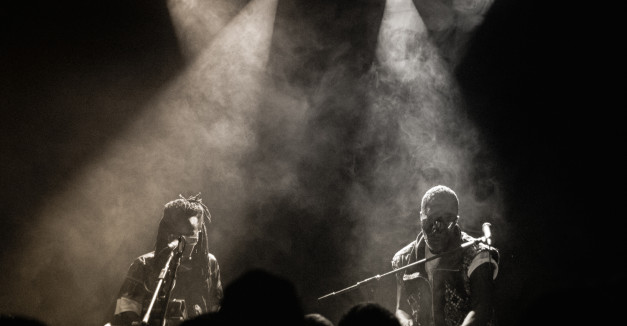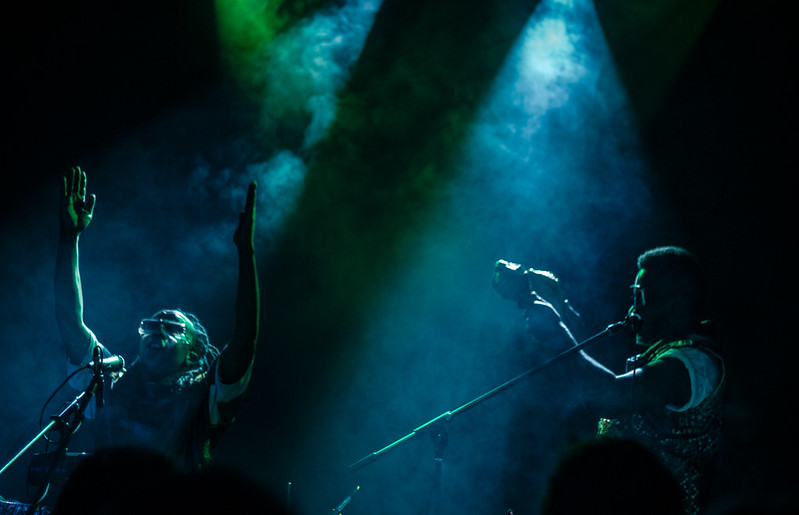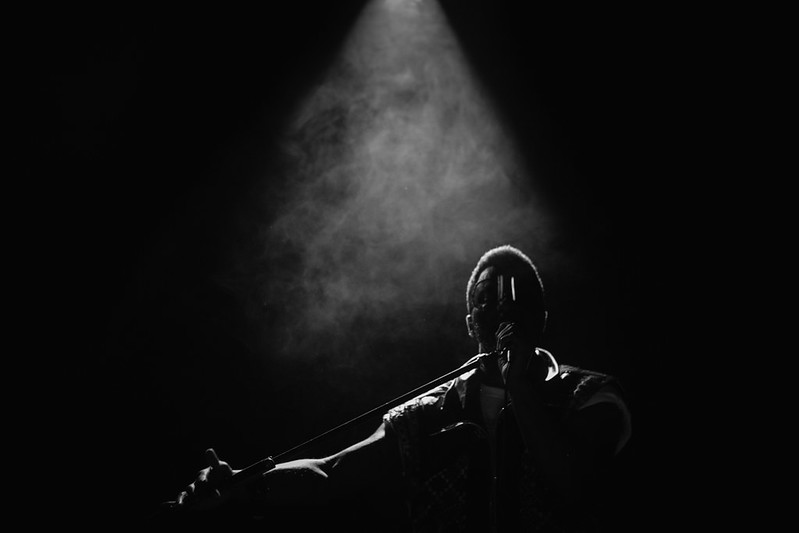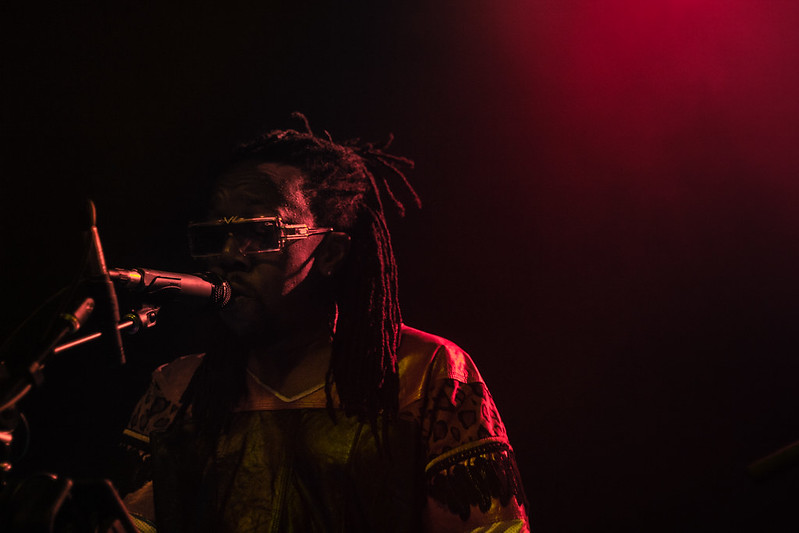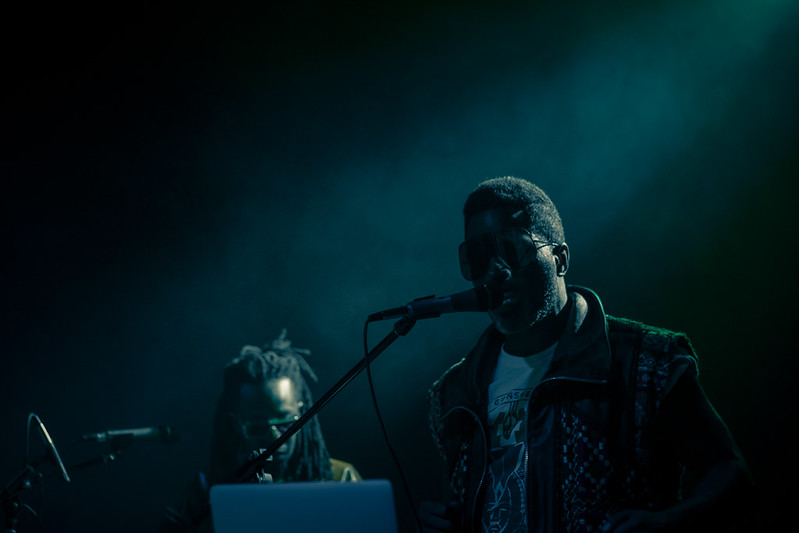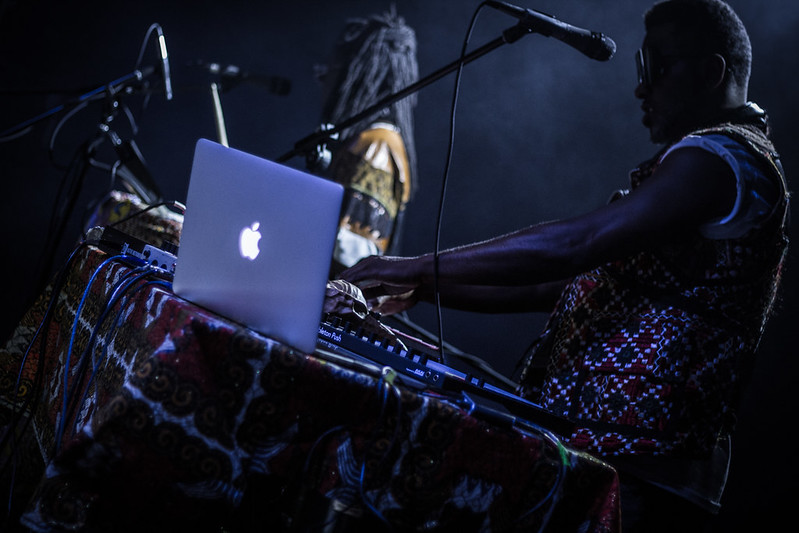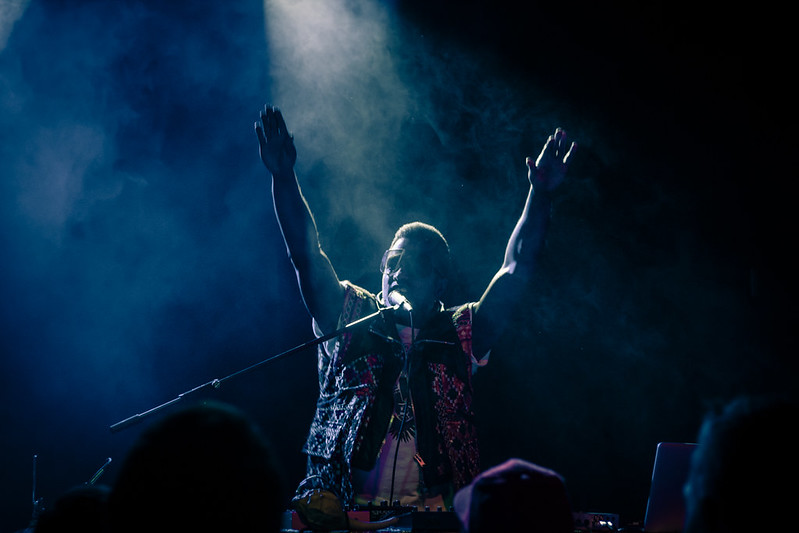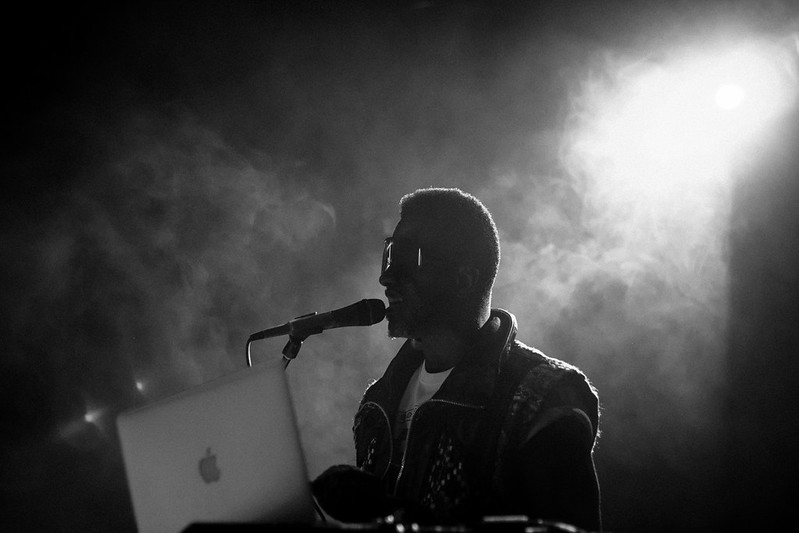Imagine standing in the middle of an empty city street, dark and still, in the wee hours of the morning. A large foreign vessel bursts from the heavens and swoops down to an intersection. The doors slide open, smoke spilling out onto the pavement and into the air, and out step Ishmail Butler and Tendai Maraire.
The members of the Seattle hip-hop duo Shabazz Palaces certainly don’t look like aliens. It’s the tone and mood of their tracks, which are manually recreated live rather than pre-recorded, that evoke images of extraterrestrial visitors flying through space.
They could instead be time-travelers, with Terminator sunglasses, custom clothing and a sci-fi smoke and light show. Or, It might be that their particular brand of progressive, experimental hip-hop is so forward-thinking, it feels futuristic, other-wordly.
Earlier this year, they released Lese Majesty, their second studio album on Sub Pop Records. The album occupies a dark, spacious area of the mind into which they pour layers of effects, percussion and Butler’s smooth flow and cryptic lyrics. Sunday night at Vega in Lincoln, the duo attacked the senses in a virtually non-stop set.
Lincoln’s Spencelove opened with a set tailored specifically to set the mood for the headlining act. He drew upon a wide range of samples, from R&B to soul, Kendrick Lamar to The Pharcyde. The DJ’s set lasted for more than an hour, with patrons casually milling about the bar, sitting at tables conversing, or standing near the bar. Occasionally, one could spot a head turn or ears perk up at a familiar song, an interesting flourish, or a beat drop. It was almost as if the set was merely premium house music, a shame for how conducive the set was to bumping and grinding. Spencelove finished on a funky rendering of “Passin’ Me By,” and cleared the way for Butler and Maraire.
Lights dimmed and sample track rolling, Shabazz Palaces emerged from the Vega green room, as if from their time machine, donning giant blast-shield-like sunglasses. Smoke billowed around them as they commenced with choreographed hand motions, arms extended aloft, creating symmetrical shapes and mirrored dance moves. The duo played off of each other flawlessly, with Butler working a bevy of samplers and digital equipment while Maraire pounded away at the collection of bongos, floor toms and auxiliary instruments that surrounded him.
While a conventional hip-hop performance might feature the emcee, Butler’s idiosyncratic flow provided another textural layer to an already rich, dense mix. His vocals would often drop out for minutes at a time in favor of extended improvisation. Famously, Maraire is the son of the Zimbabwean mbira master Dumisani Maraire, and when added to rippling vocal effects, loops, and Earth-shaking drum and bass, his use of the instrument is part of what gives their music a strong tribal element.
The group played for more than an hour and a half, barely stopping to breathe or speak. They admirably dealt with an ongoing speaker issue, but it hardly seemed to derail them. On another night, perhaps a Friday or Saturday, the intensity might have moved the crowd to frenzy. Toward the end, Butler, imploring the crowd, rapped, “It’s not hard to bop hard/it’s required that you bop hard.” A few fans danced and swayed, but it was a mostly subdued turn-out.
When the main set was over and the crowd was finally allowed a response, it burst into cheers for an encore. After playfully teasing one, the group came back out for one more boisterous, heavily reverberating track that completed an epic journey through the abyss and back. That they hopped off stage immediately to greet their fans underscored the fact that they wanted them along for the ride.





